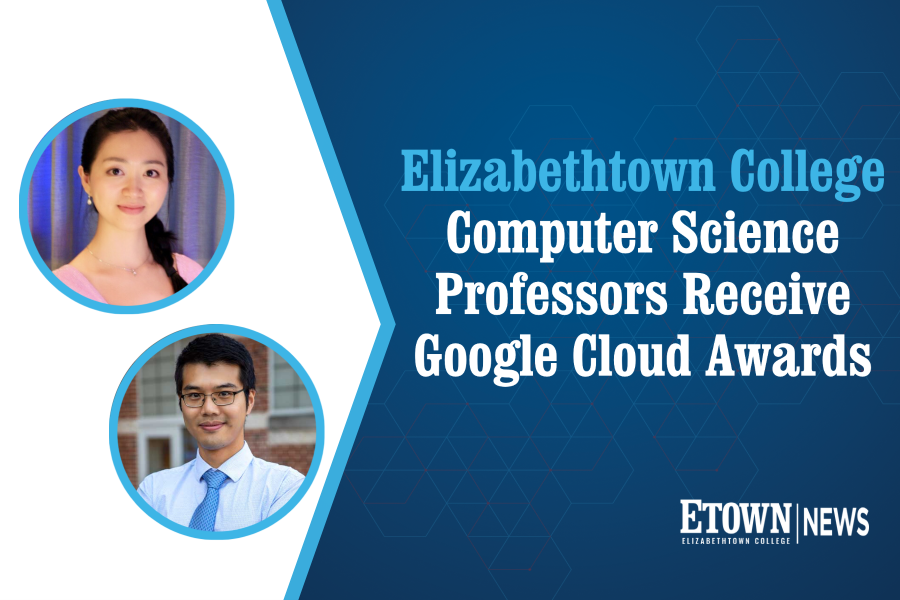Elizabethtown College Assistant Professors of Computer Science Jingwen Wang and Peilong Li both recently received 2022 Google Cloud Research and Teaching Awards.
Wang and Li have received the Google Cloud Teaching Awards with $5,000 Google Cloud Platform (GCP) credits, respectively. The grants will be used to support the students and instructors on the Cloud Computing expenses incurred in two Etown Computer Science courses designed to engage the Google Cloud technologies: CS 310 – Web Development and CS 363 – Computer Security.
Students in CS 310 will design and implement scalable and secure websites, web-based applications, and games using cloud services offered by Google, while the CS 363 course uses Google cloud to cover cybersecurity topics in virtual-machine, containers, network simulation, ethical hacking, and cyber defense. Both courses introduce students to real-world and career-ready cloud computing skills.
“These awards provide instructors the course innovation opportunities to embrace cloud computing in higher education,” Wang said. “It also saves the College’s resources by using cloud-based services instead of maintaining on-site computer hardware.”
Each professor also received a 2022 Google Cloud Research Award of $10,000, which include $5,000 in teaching credits and $5,000 in research credits. Li’s project, “Edge Network Malware Detection with Deep Learning for Smart Homes” continues his work in detecting malicious behaviors from cyberspace in real-time, which has also led to three Intel Research Grants.
Wang is conducting research on Cloud Computing, Deep Learning, and Natural Language Processing. Her project, “Automated Essay Scoring on K-12 Argumentative Writing” employs neural
network approaches for effective argument prediction of argumentative writing elements from students grades 6-12.
The argumentative essay, which is the most common essay type for high school and college students, is a genre of writing that requires the student to establish a position on a certain topic by a specific writing prompt. Researchers have developed automated essay scoring (AES) approaches using machine learning methods to support and teach K-12 students about writing essays. However, research challenges in machine learning, such as the limitation of data, feature engineering, and feature analysis make it difficult to rate the effectiveness of argumentative writing elements in students.
“Our goal is to conduct an accurate model for effective arguments prediction of argumentative writing elements from students grade 6-12, and improve the computational efficiency of the model by leveraging the model compression techniques,” Wang explained.
Want to learn more about Computer Science? Check out Etown’s Computer Science Program.



